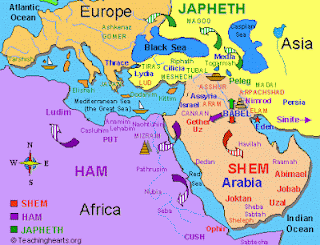In Acts 2:7-11 Luke lists the various groupings represented in Jerusalem at the time the Holy Spriit was poured out. He says
Utterly amazed, they asked: "Aren't all these who are speaking Galileans? Then how is it that each of us hears them in our native language?
Parthians,
Medes
and Elamites;
residents of Mesopotamia,
Judea
and Cappadocia,
Pontus
and Asia,
Phrygia
and Pamphylia,
Egypt
and the parts of Libya near Cyrene;
visitors from Rome (both Jews and converts to Judaism);
Cretans
and Arabs
Medes
and Elamites;
residents of Mesopotamia,
Judea
and Cappadocia,
Pontus
and Asia,
Phrygia
and Pamphylia,
Egypt
and the parts of Libya near Cyrene;
visitors from Rome (both Jews and converts to Judaism);
Cretans
and Arabs
- we hear them declaring the wonders of God in our own tongues!"
If each reference points to one language and we assume that Greek, Aramaic and Hebrew were also spoken, then one person from each group of about six among the 120 would need to speak in that language. Perhaps as many as 120 different languages were spoken.
No doubt Luke bases his list on the 70 in Genesis 10, updating and selecting as he felt was right.


